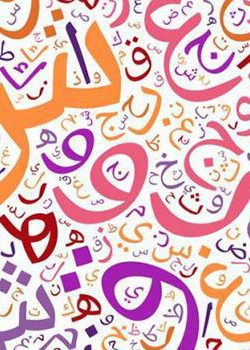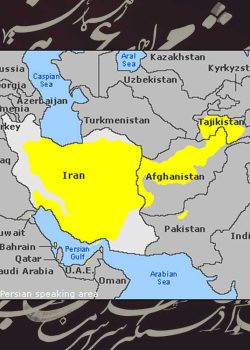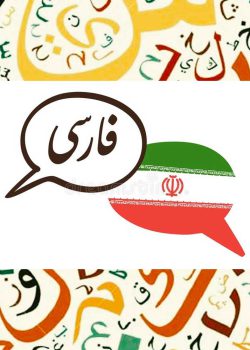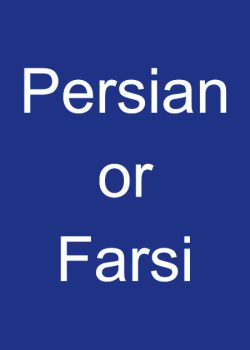Iranians have a strong feeling of national pride because they see themselves as the inheritors of a great and noble culture that dates back thousands of years. Their literature, among the oldest and most esteemed in the world, often deals with ethereal mysticism and romantic themes. The expression “Ghorbunet Beram,” which means “I’ll sacrifice myself for you” in English, is a good example of the intensity of these feelings.
The article dives into the background of this idiom and provides examples and dialogue to show how it is used in contemporary Persian culture.
All Different Meanings for Ghorbunet Beram
“Ghorbunet Beram” is a flexible Farsi (Persian) phrase that incorporates a variety of sincere meanings. Its significance in Persian culture stems from its wide range of meanings, which include declarations of affection, appreciation, and generosity. Check out the whole explanation below:
Gratitude Expressions
One of the many meanings of the term “Ghorbunet Beram” in Persian culture is an expression of thanks. Take the following hypothetical discussion:
A: Hi Ati, how are you doing?
B: Hello, Fatima. Thank you. I’m doing OK. Ghorbunet Beram.
A: You’re kind, thank you. So, what’s new with you?
B: Well, I appreciate your concern and prayers for my health problems. Ghorbunet Beram.
A: Never mind thanking me for that; it’s not necessary. I’m always here for you. But that’s so nice to hear; it warmed my heart. How are you feeling now?
B: I’m doing much better now that I’ve got supportive pals like you. Ghorbunet Beram.
The phrase “Ghorbunet Beram” is used many times during the talk. B expresses gratitude to A for being there for them and helping them through a tough moment. It’s a method to show how much they appreciate each other and how close they are as friends.
Taarof and Politeness
“Ghorbunet Beram” also has a place in the complex system of Persian courtesies and manners known as “Taarof.” It enables people to act with extraordinary decency and selflessness, even if it does not entail giving their lives. Here’s an example:
A: Thank you so much for the delicious meal, Aunt Laleh. It was amazing.
B: Khahesh Mikonam (You’re welcome), dear. I’m delighted you enjoyed it.
A: It was beyond delicious. I can’t thank you enough.
B: You don’t need to thank me so much; it was a pleasure to have you. Ghorbunet Beram.
A: Oh, you’re too kind. You went to so much trouble for me.
B: Not at all; it was my pleasure. In our culture, we believe in hospitality and making our guests feel truly welcome.
“Ghorbunet Beram” is employed here in the context of “Taarof,” an extreme form of politeness common in Persian culture. At first, Person B downplays the work put into the dinner in an attempt to be polite. In return, Person A offers words of thanks and admiration. Person B then uses “Ghorbunet Beram” to further stress their readiness to go above and beyond for their visitor.
A Gesture of Profound Love
The words “Ghorbunet Beram” convey unfathomable levels of love and loyalty. A statement of love so strong that one would give up one’s life to ensure the other’s well-being is at the heart of this concept. Picture this: two people who are madly in love are having a conversation:
Sarah: (smiling) Ghorbunet Beram, John. How was your day at work?
John: (grinning) Ghorbunet Beram, Sarah. It was hectic, but seeing you now makes it all better.
Sarah: (playfully) Well, I have a surprise for you. Ghorbunet Beram, I made your favorite dinner tonight.
John: (surprised) Ghorbunet Beram? You’re amazing! I can’t wait to taste it.
Sarah: (teasingly) That’s not all. Ghorbunet Beram, I even did the dishes for you.
John: (gratefully) Ghorbunet Beram, you’re spoiling me today. I’m the luckiest person in the world.
Sarah: (affectionately) And you deserve it. Ghorbunet Beram, my love for you is endless.
“Ghorbunet Beram” perfectly captures the spirit of selflessness and sacrifice made for the sake of love in this conversation. It’s more than words; it gets to the heart of what it means to love someone so much that you’d sacrifice everything for them, including your pleasure and satisfaction.
Expressing Devotion
“Ghorbunet Beram” is more than just words; it’s a promise. It’s a method to let your partner know they have your undivided attention and that you’re prepared to put their demands ahead of your own every time. It goes far beyond typical displays of affection and is a selfless proclamation of love.
Here’s a conversation:
Sarah: (gazing into John’s eyes) Ghorbunet Beram, John. My love for you is beyond words. I’d do anything to see you happy.
John: (smiling) Ghorbunet Beram, Sarah. I feel the same way. Your happiness means the world to me.
Sarah: (holding John’s hand) It’s more than just words, you know. It’s a promise of unwavering loyalty and devotion. I’d give up everything for you.
John: (squeezing Sarah’s hand) I would do the same without a second thought.
In this conversation, the phrase “Ghorbunet Beram” is used naturally within their expressions of affection and care for each other.
What Is the Difference Between Ghorbunet Beram, Ghorbanat, and Ghorbane Shoma?
“Ghorbunet Beram” is an expression deeply associated with romantic love and passion in Persian culture. It signifies a willingness to sacrifice for your loved person, demonstrating a profound commitment and devotion.
But now is the time to go into the meaning of Ghorbanat Ghorbane Shoma:
“Ghorbanat” with Example
“Ghorbanat” is often employed in the context of “Taarof,” the Persian practice of kindness and etiquette. It’s not as full of ardor and devotion as “Ghorbunet Beram.” Instead, it’s a gesture of civility and an attempt to put oneself in another person’s shoes. By saying “Ghorbanat” in response to a kind act, you may express your appreciation without assuming any romantic interest in the other person.
Here’s an example of a conversation:
A: “I can help you with your groceries. Let me carry that for you.”
B: “Ghorbanat, that’s very kind of you. I appreciate your help.”
If A helps B out, B will say “Ghorbanat” to show appreciation and be courteous. It’s not meant to be romantic or passionate, but polite thanks for the help.
“Ghorbane Shoma” with Example
“Ghorbane Shoma” is another term that comes under the category of “Taarof” and respect in Persian culture, similar to “Ghorbanat.” Like “Ghorbanat,” it does not always communicate sentiments of love or passion but rather gratitude for another’s compassion and the desire to treat others respectfully.
Here’s an example of a conversation:
A: “I brought you these beautiful flowers as a token of my appreciation for your help.”
B: “Ghorbane Shoma, that’s so kind of you. These flowers are lovely, and I’m truly grateful for your gesture.”
Last Words
“Ghorbunet Beram” is more than simply a phrase; it is a heartfelt confession of love and loyalty. Originating in Persian culture, it has evolved to represent unselfish love.
This statement effectively conveys the depth of one’s feelings, whether used romantically or to show affection for one’s family and friends. Among the many methods to express affection, “Ghorbunet Beram” stands out as a universally touching expression of devotion.
FAQs
What Does “Ghorbunet Beram” Literary Mean in English?
“Ghorbunet Beram” translates to “I sacrifice myself for you” in English. It is a Farsi (Persian) expression of deep love and devotion.
How Is “Ghorbunet Beram” Used in Persian Literature and Music?
The phrase is often used in Persian literature and music to express love, devotion, and selflessness. It serves as a symbol of deep affection and has an enduring influence on Persian artistic expressions.
Can “Ghorbunet Beram” Be Used in Different Contexts and Relationships?
Yes, “Ghorbunet Beram” is versatile and can convey love and devotion in various relationships, including romantic, familial, and friendships.
Read More:
Related Posts











